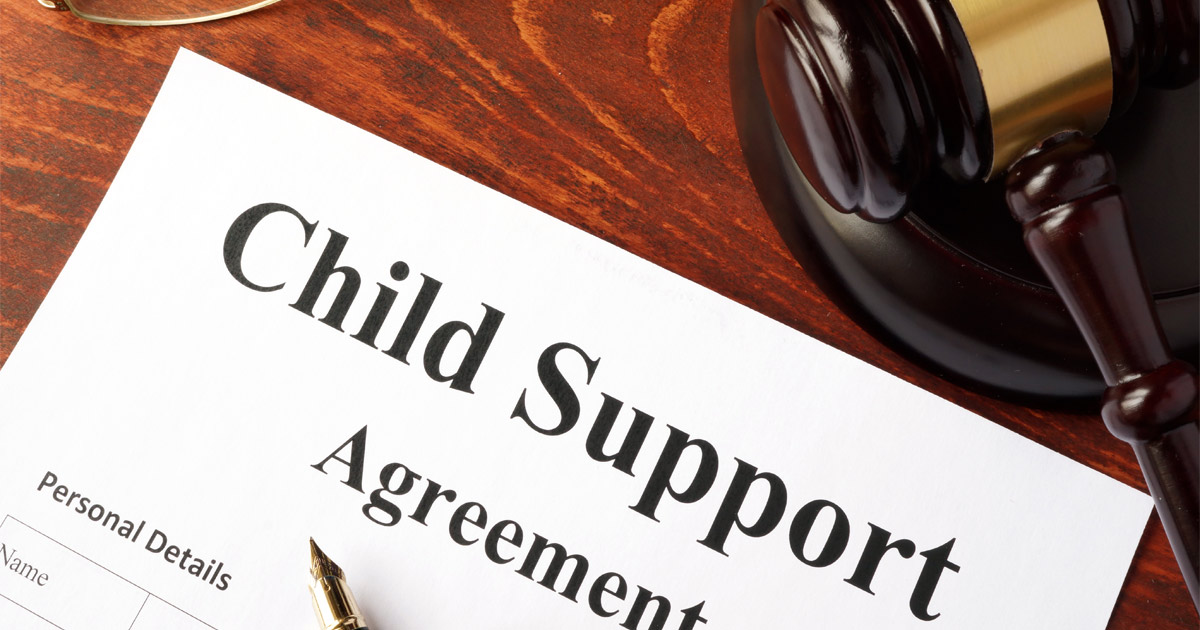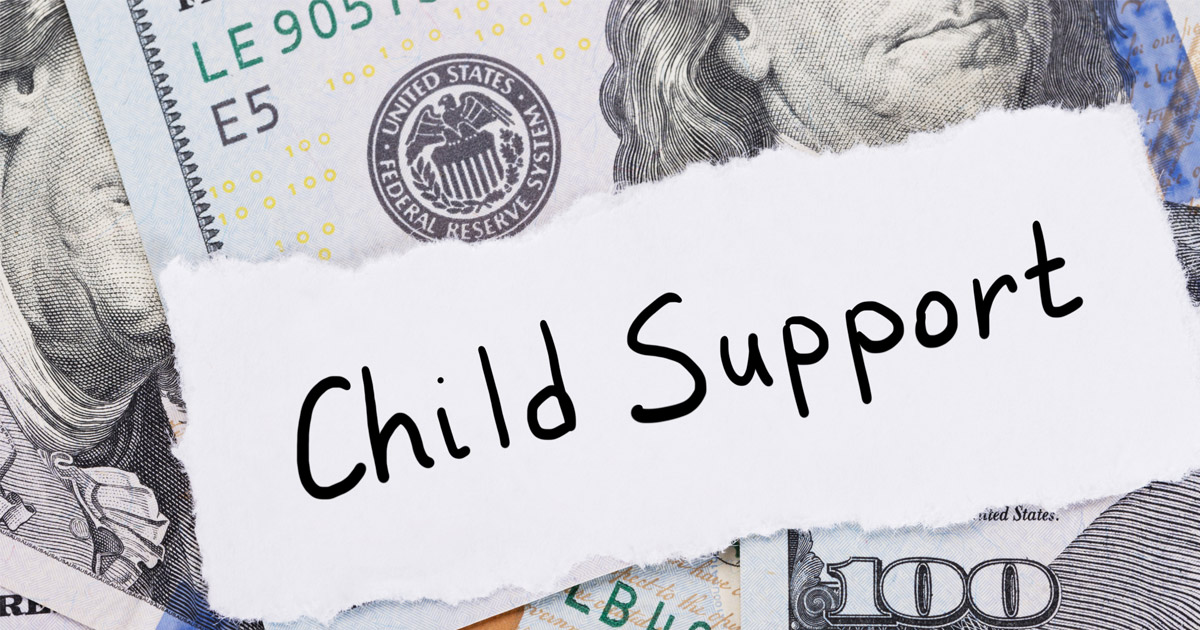Child Support
Child support is a part of every divorce involving children. One parent tends to take full-time custody of the children, while the other pays child support and lives separately. Calculating, understanding, adjusting, and paying child support requires know-how on the part of both parents. Speaking with a Moorestown child support lawyer helps the family determine how support is paid and how much is to be paid.
Contentious issues in a divorce often involve money, child custody, and how support will be paid. These issues can get out of control when parents fight over this singular issue and prevent a divorce from resolving appropriately. Some parents even take this as far as refusing to pay child support or insisting that they have calculated their own child support payment.
Parents should not attempt to come to these conclusions on their own. Retaining a lawyer helps the family expedite the divorce process and avoid confusion or mistakes when paying child support. Both parents deserve to understand the process so that they can provide for their children and abide by their divorce decree.
When is Child Support Paid? 
Child support is paid in any situation where one parent takes full custody of the children and must support those children on their own. During the marriage, both parents commingled funds or bank accounts in an effort to support the children. These accounts provided a level of security the family enjoyed, and that income must be replaced. Without a second breadwinner, the custodial parent needs assistance in the form of child support.
Child support is often paid after the completion of a divorce decree. Some parents choose to pay child support before their divorce is finalized, but they do not need to unless their divorce is amicable or the financial situation for the custodial parent is tenuous. If parents come to an agreement before their divorce is finalized, it should still be documented by a lawyer to ensure appropriate behavior from both parties.
Payments are often made at the beginning of the month, and it is either paid directly to the custodial parent, subtracted from the non-custodial parent’s paycheck, or paid to the court system. Some parents break up child support into equal payments based on how often they are paid. Child support is to be paid until the child reaches the age of emancipation, which is 19 in New Jersey, or until the parents agree on when support will stop. For example, other accommodations may be made based on the family’s lifestyle or the child’s needs.
Who Pays Child Support?
 Typically, the non-custodial parent pays child support. Unfortunately, some divorced parents do not have an ex-spouse to lean on. A non-custodial parent might be incarcerated, institutionalized, or missing. When this is the case, child support may not be paid. The obligated party must file a motion to suspend or terminate their obligation to pay child support. If not, the amount owed will continue to rise due to non-payment.
Typically, the non-custodial parent pays child support. Unfortunately, some divorced parents do not have an ex-spouse to lean on. A non-custodial parent might be incarcerated, institutionalized, or missing. When this is the case, child support may not be paid. The obligated party must file a motion to suspend or terminate their obligation to pay child support. If not, the amount owed will continue to rise due to non-payment.
Child support accumulates even if the non-custodial parent has vanished. In cases of desertion, the non-custodial parent might return or be found by a lawyer, their ex-spouse, or a private investigator. Criminal charges may be filed for desertion or non-payment of support.
In New Jersey, court enforcement of child support obligations is also available. The court will sign a bench warrant for the non-custodial parent’s arrest, order them to pay support in part or full, or tack additional payments onto the child support order. Parents who believe they have not been paid appropriately should reach out to a lawyer to discuss their options. -Noncustodial parents also need a lawyer who will represent their best interests in case there is a change in their situation.
Am I Liable for Child Support?
The non-custodial parent is liable for child support in all cases unless their ex-spouse no longer requires child support. While the court does not typically terminate child support payments upon the marriage of an ex-spouse, the ex-spouse’s income may be taken into consideration.
The state requires child support be paid so that the combined income of both households supports the children. It is difficult to avoid child support, and it sends a bad message to the children when their parent does not want to pay. Plan to pay child support until it seems natural that the children no longer require help from their parents.
How is Child Support Calculated?
Child support in New Jersey should be calculated by a skilled lawyer who understands the process. Completing the form can be difficult for parents with no experience, even though they may have access to the New Jersey online child support calculator. The calculator is merely an approximation and does not tell parents the exact amount they must pay. The court does not accept calculations pulled from the child support calculator’s website. In short, child support is calculated using:
- Gross income
- The percentage of parenting time
- Sole parenting time
- Shared parenting time
Keep in mind that both parties must list all their income, including:
- Salary, tips, commissions, etc.
- Business income
- Capital gains
- Property income
- Rental income
- Bonuses or royalties
- Alimony
- Annuities or trusts
- Life insurance or endowment payments
- Government payments
- Interest payments
- Disability payments
- Profit-sharing income
- Workers’ Compensation
- Overtime
- Unemployment
- Gambling winnings
- Profits from investments
- Income tax credits or rebates
- Cash payments
- In-kind benefits
Parents must be honest with their lawyers when dealing with a divorce decree and child support payments. These payments cannot be calculated properly if the lawyer does not have appropriate information. Lawyers also do not want to be surprised when arguing on behalf of their clients and learn that they have not been given all the information they need.
While child support is meant for the support of the children, in the general sense, parents may include different types of payments in their parenting plans. Items not typically included in a child support order include:
- Extraneous medical expenses
- Extracurricular expenses
- Transportation expenses
- Private school tuition
- College tuition
- Travel expenses for visitation
Paying for extra activities helps parents remain involved in their child’s lives. As these activities can be expensive, child support might include payment for special activities that are meant to enrich the child. Paying for music lessons or sports leagues helps the child remain on their current path, which may culminate in a career in those fields.
The court may also add car payments, lease payments, transportation fees, and tolls to the overall support order. Parents must communicate during the divorce proceeding to ensure they know what they are paying for and what child support pays for. This can be a confusing subject for parents as they often do not know how to afford these new expenses. Mediation is also available if the two sides cannot agree on extra expenses. If the parents do not reach an agreement, the court will order payment as it sees fit.
What are High-Income Families?
The state of New Jersey makes special provisions for high-income families. When two parents have a combined gross income of $187,200 or more, they are considered a high-income family. With higher income comes more spending, and the court takes this into account when creating a child support order.
Additional support may be added based on how much additional income both parents have. Because the court is not starving the payer in this instance, it may order additional payments based on the needs of the children, their activities, or the family’s lifestyle. High income parents should not expect to save extra money simply because they receive a large paycheck every month. The court has latitude to carefully consider how much child support is paid.
Additionally, high-income parents may be ordered to pay alimony as part of the divorce decree. Ensure that all these items are covered with a lawyer before the decree is signed.
How Long Do I Pay Child Support?
As mentioned, child support is paid until the child reaches the age of emancipation or they graduate college. Parents must discuss these provisions when speaking to their lawyers and understand what the age of emancipation means. Children can be emancipated at 19 if their parents believe they are independent and can care for themselves. Parents make this determination together or during a hearing in family court. Other circumstances calling for a termination of child support payments include:
The child has moved out: Children may move out or effectively emancipate themselves at any time. While this situation may not be permanent, some children never return to the family nest. Review the situation with a lawyer to learn if child support should cease. Since the right of child support remains with the child, paying a parent who does not house the child may not make sense.
The child enlisted in the military: When children enlist in the military, they are no longer their parents’ obligation. Members of the military are paid a salary just like any other job, and the child no longer requires child support maintenance payments. If other children remain in the home, child support is recalculated.
The child is married: Children who marry are no longer eligible for child support. While parents may not be aware of this situation right away, they can research the marriage license, speak to a lawyer, and review their options. Additionally, if that child has children of their own to support, they may not be eligible for continued child support payments.
What if I Lose My Job?
Parents who lose their jobs or take a significant reduction in salary may petition the court for a child support adjustment. A loss of income changes the fundamental premise of the child support order as the parent no longer makes enough money to support their current obligation. The court, however, must be convinced that the non-custodial parent cannot afford child support and the situation warrants a modification. Parents who lose their jobs and do not ask for a modification are expected to pay the full amount every month.
What Other Circumstances Allow Me to Modify My Child Support Agreement?
Parents often wonder how to modify their support order. Several situations may occur, and parents should review their circumstances with a lawyer before taking legal action. The following circumstances warrant a child support modification:
Inheritance: Someone who has come into quite a bit of money or taken a lucrative position may have their income tested against current child support regulations. Payers must keep in mind that their income will also be reviewed if they take the issue back to court. The court may not alter child support based on these grounds, but the matter should be reviewed with a lawyer to be sure.
Combined income in new marriages: Parents are also liable for child support if they choose to remarry and have more children. The court knows that parents can remarry and have more children whenever they like, but those children are not part of the support order. The child support belongs to the biological children listed in the divorce decree, and that is why liability for child support typically changes when the child reaches the age of emancipation.
Child support was used for other expenses: In extreme cases, parents may petition for a new child support order if they believe their child support has been used to support other children. For example, a parent who pays child support may know that their ex-spouse has multiple children with their new spouse. If their biological children are not receiving support as ordered, they may need to bring the matter before the court.
What if I am Not Allowed Visitation?
Child support and child custody are not related. Parents agree to a parenting plan and visitation agreement separate from the child support order. Visitation may be fluid or adjusted based on the family’s situation, but it does not impact child support that must be paid every month.
Parents who feel they have been slighted may choose to limit or disallow visitation. When this occurs, do not withhold child support. Retain a lawyer and reach out to the court because the custodial parent has violated a court order. Withholding child support makes the situation worse for everyone, and the non-custodial parent could be arrested or have their wages garnished in the meantime. When the court finally hears the non-custodial parent’s petition for restoration of visitation rights, an arrest or child support arrears will not reflect well on the plaintiff.
Are There Situations I Should Avoid?
Divorcing parents must remain professional and treat each part of their divorce like a business transaction. This attitude helps remove emotion from the equation and prevent outbursts or tense situations. While child support can be expensive or even contentious, parents should avoid the following circumstances:
Threatening to withhold child support: Child support is paid under a court order, and it cannot be changed without a modification of that court order. Therefore, the non-custodial parent must retain a lawyer and file a motion to modify their child support obligation. Paying with non-traditional funds makes it difficult for the custodial parent to collect. Parents should never threaten to withhold child support for any reason. While threatening a lawsuit is not illegal in New Jersey, the custodial parent may take this threat as an attempt to extort something else from them in exchange for child support. These charges can be brought before the court, and the offending parent may be liable for legal fees, fines, and more.
Sharing child support details with the children: Children do not understand the situation. Telling a child that they receive $1,000 a month may shock them, lead to more questions, and put the custodial parent in a bad situation.
Assuming child support just stops: Children turn 19 and often move out to start their lives as legal adults, go to college, or travel. The payer, however, cannot assume that their child no longer qualifies for child support. A petition to terminate child support payments must be filed with the court. If the parents do not agree on the child’s emancipation, a lawyer must argue the case before the court. In short, parents pay child support until they are told they can stop.
Can I Bring My Case Before the Office of Child Support Services?
While parents may file a complaint with the Office of Child Support Services (OCSS), the agency takes quite some time to review each case. Speaking to a lawyer expedites the process. If parents can wait for a response, they can save money by awaiting an answer from the OCSS. If the situation becomes untenable, parents may reach out to a lawyer for assistance. When bringing the case to the court, it helps to show that a complaint was also filed with the OCSS.
Should I Hire a Lawyer?
Both parents should hire a lawyer when divorcing. A lawyer listens to the client, determines what is in their best interests, and files documents on behalf of their clients. While it may be simple to let the custodial parent hire a lawyer and take care of everything, both parents need a lawyer doing their own work. The custodial parent’s lawyer will calculate child support. A lawyer also works on a schedule for visitation, custody options, writing custody orders, and adding special items to the divorce decree. If there comes a time when a parent requires more assistance, they should reach out to their lawyer as soon as possible. Remain in contact with a lawyer if questions arise regarding modifications or when children age out of child support or child custody orders.
Moorestown Child Support Lawyers at Stockton Family Law Help Clients with Child Support Matters
When you need help with child support issues, reach out to our Moorestown child support lawyers at Stockton Family Law for assistance. We help divorcees determine their child support liability or petition for recovery of child support. Call us today at 856-412-5052 or contact us online for an initial consultation. Located in Moorestown, New Jersey, we serve clients throughout South Jersey, including Mount Laurel, Burlington County, and Camden County.





